Search Results
Showing results 81 to 100 of 296

Partners in Pollination
Source Institutions
In this activity, learners identify the reproductive parts of plants and the animal (bee) structures involved in pollination.

Environmental Chemistry
Source Institutions
In this activity with several mini experiments, learners explore the chemistry that helps scientists learn about the environment and how they can help save it.

Walk On Water Bugs
Source Institutions
In this activity (on pages 29-35), learners examine water pollution and filtration.
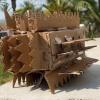
Biomimicry Mash-Up
Source Institutions
In this design challenge activity, learners explore the concept of biomimicry by using a natural organism's special features to design a new human object.
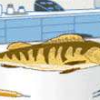
Seafood Surgery
Source Institutions
In this hands-on activity, learners discover the similarities and differences between a vertebrate and invertebrate by dissecting a perch and a crawfish.
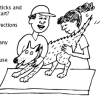
Pet Parasite Detective
Source Institutions
This activity (on pages 19-25) is about fleas and ticks, which are common pet parasites.

Exploring Symbiosis
Source Institutions
In this activity, learners discover which plants and animals have symbiotic relationships and how this impacts each organism.

Make Your Own Deep-Sea Vent
Source Institutions
In this activity, learners make a model of the hot water of a deep sea vent in the cold water of the ocean to learn about one of the ocean's most amazing and bizarre underwater habitats.

Building a Magic Carpet
Source Institutions
In this activity (page 89 of the PDF), learners compare and contrast pitch and roll motions by using a Magic Carpet maze similar to one that was used for Neurolab investigations about microgravity.
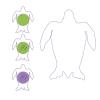
Sea Turtle First Aid Investigation
Source Institutions
This activity (located on page 4 of the PDF under GPS: Sea Turtles Activity) is a full inquiry investigation into testing a repair material.
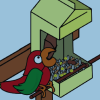
Bird Feeders
Source Institutions
In this activity, learners build a bird feeder or feeders to attract birds for observation.

What Cells Can I See in Muscle and Spinal Cord Tissues?
Source Institutions
In this activity (page 37 of the PDF), learners observe, on a prepared slide, muscle and spinal cord cells from a rat.
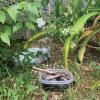
Build A Bee Bath
Source Institutions
In this activity, learners use found natural materials to create a water haven for bees and other insects.

BioBlitz
Source Institutions
In this activity (on page 2 of the PDF under GPS: Biodiversity Activity), learners will pair up and take a notebook outdoors to a selected location to observe and record a list of living things that t

Wolf Postures
Source Institutions
In this activity, learners investigate how wolves communicate with each other through different body postures.
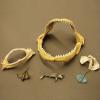
Shark Cart
Source Institutions
In this activity, learners touch and observe skulls of sharks and rays to learn about their diversity (over 400 species of sharks alone!).
Any Year Calendars
Source Institutions
This PDF contains 12 calendars (12 months). Each month contains activities about math. Things to do on familiar holidays (like July 4), less common holidays (like Backward Day), and any day.
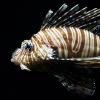
Fishy Observations
Source Institutions
In this activity (page 1 of the PDF under SciGirls Activity: Rabbits), learners will visit a zoo, aquarium, or pet store to view a variety of fish.

Bean-Counter Evolution
Source Institutions
In this simulation game, learners play as predators equipped with genetically different “mouths” (utensils) and hunt for “prey” (assorted beans).
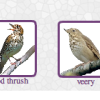
Thrush Songs: An Interactive Game
Source Institutions
In this interactive game, learners listen to the songs of four different thrushes and then try to match each bird with its song.
